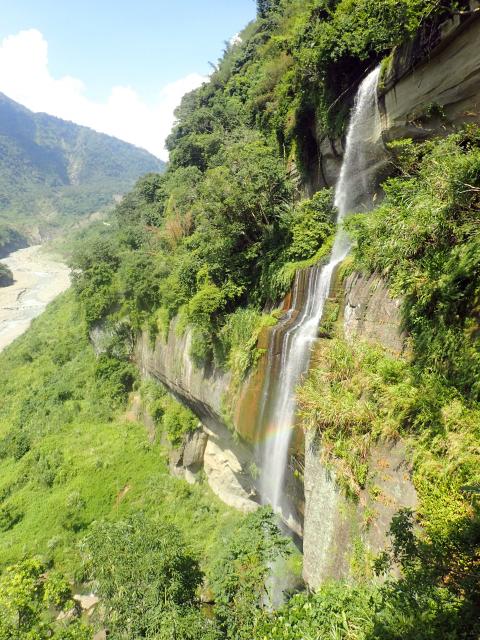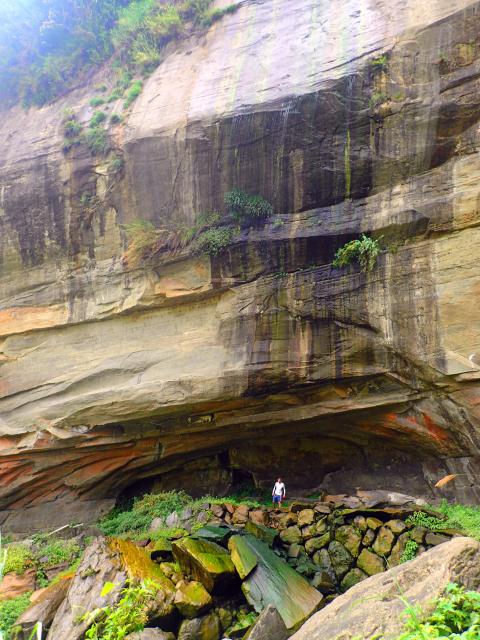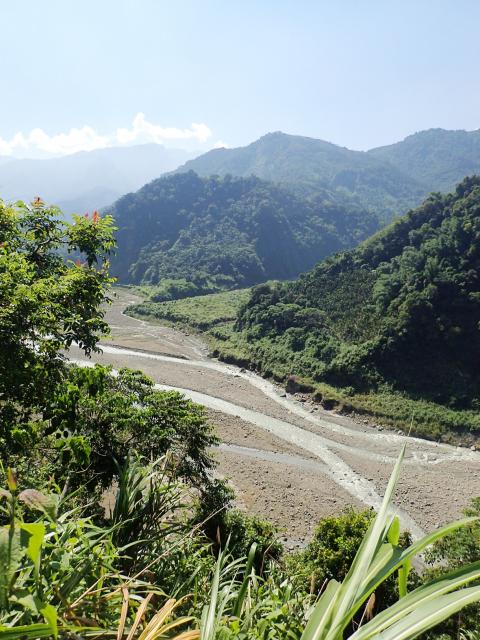Perhaps I’m preaching to the converted, but for those fresh arrivals still unaware of the dangers they face, Taiwan has an uncanny knack of snaring foreign visitors, bewitching them with its incredible beauty, rich traditional culture and quirky unpredictability, and refusing to let them leave without a struggle.
Before I first arrived in 1993, the exotic and often slightly mysterious-sounding places described in my already dog-eared copy of Lonely Planet Taiwan were almost as strong an attraction as the prospect of teaching English and earning some much-needed cash to further my travels in the Far East. The original intention was to stay for maybe six months, and scoot around some of the more intriguing places described in the guide. I’d save some money, learn a few words of the local lingo and then get lost in the vastness of China for a couple of months before returning to London to find a proper job.
Needless to say, my plan didn’t work as expected, and almost 25 years later I’m still here, still teaching and, above all, still exploring. It’s an extraordinary, if slightly unnerving, fact that Taiwan, although just a small island, has a virtually inexhaustible list of things to do, places to discover, experiences to experience. Almost a quarter of a century after arriving, I’m still finding remarkable, occasionally astonishing, places that were unknown to me until just months or even weeks ago. Taiwan is a (benign) Pandora’s Box for explorers.

Photo: Richard Saunders
In this little weekly piece I’d like to introduce a selection of the many places, sights and experiences I’ve been lucky enough to enjoy over my many memorable years here. Hopefully, my experiences will encourage others to explore Taiwan’s towns, temples, mountains and gorges for themselves. The only pre-requisite to becoming an explorer here is a genuine respect for Nature and the local culture, as well as a healthy dose of common sense.
Let me kick off with the place that first really captured my imagination, back in 1992. Trapped in a boring clerical position at a music publisher’s office in London’s Oxford Street, I’d escape during my lunchtimes into the travel guides of a nearby bookshop. One day I stumbled across a guidebook to Taiwan (the only one in those days), and was especially smitten by the description of a mountain resort, in the central county of Yunlin, called Caoling (草嶺). Near the resort were places with names such as ‘Lost Soul Valley’ (斷魂谷) and ‘Spring and Autumn Cliffs’ (斷崖春秋) that piqued my interest. Luckily I visited them both the very next summer (my first in Taiwan) as those last two places were lost forever on Sept. 21 1999, when a magnitude 7.2 earthquake — today known as the 921 Earthquake — caused a vast landslide, burying them, and killing several people living nearby.
Thankfully Caoling village lay out of the path of the falling mountainside, and to this day it remains (in my humble opinion) one of Taiwan’s loveliest weekend mountain retreats. Right below it lies the beautiful Water Curtain Cave (水濂洞), the place that intrigued me most of all during my book-reading lunchtimes back in London all those years ago.

Photo: Richard Saunders
The Water Curtain Cave is not one but two caves, behind a lofty 60-meter-high waterfall. It can be a tad underwhelming during the winter dry season, but this time of year it’s returning back to full, boisterous life with the arrival of the plum rains, while the oppressive summer heat is still hopefully a month or so away.
The trail from Caoling village down to the foot of Water Curtain Cave is only a few kilometers each way, but allow a half day to enjoy its many attractions at leisure. The walk starts with a leisurely stroll downhill along the lower of the two main streets through the village, passing a store on the right that doubles as the village gas station, selling fuel to grateful scooter riders by the can — it’s helped me out of a tight situation more than once over the years.
At the bottom the road ends at a magnificent viewpoint over the gorge of the Clearwater River (清水溪). A signposted trail here descends steps through a plantation of bitter tea oil trees (the oil pressed from the fruit of these trees is a popular local specialty). Soon the trail enters the Enchanted Valley (幽情谷), a small defile cut through the sandstone by the cascading stream as it rushes towards the head of the great waterfall below. Just before reaching the head of Water Curtain Cave the trail veers left, uphill, then descends a long and very steep flight of iron steps. At the bottom a trail on the right leads behind the small upper cave, right below the lip of the waterfall.

Photo: Richard Saunders
A series of remarkably engineered wooden steps (rebuilt just two years or so ago after a typhoon washed away the original walkway) negotiates a way down the sheer cliffs of the gorge, passing a pockmarked cliff face called the Beehive Rock (蜂巢石), a balancing boulder crowning it the Frog Rock (青蛙石) and the crack-like Marvelous Cave (奇妙洞), through which the thin and lithe could once walk through to the far side, before it was partially filled by typhoon rockfalls several years back.
At the bottom, the trail veers right along the foot of the cliffs and enters the huge overhang at the base of Water Curtain Cave. It’s a remarkable experience (and a rare one in Taiwan), standing behind the falling water, and a great place to pause, enjoy the cool downdraft created by the falling waters and take a rest before contemplating the long climb back uphill to Caoling village.
Richard Saunders is a classical pianist and writer who has lived in Taiwan since 1993. He’s the founder of a local hiking group, Taipei Hikers, and is the author of six books about Taiwan, including Taiwan 101 and Taipei Escapes. Visit his Web site at www.taiwanoffthebeatentrack.com.

On April 26, The Lancet published a letter from two doctors at Taichung-based China Medical University Hospital (CMUH) warning that “Taiwan’s Health Care System is on the Brink of Collapse.” The authors said that “Years of policy inaction and mismanagement of resources have led to the National Health Insurance system operating under unsustainable conditions.” The pushback was immediate. Errors in the paper were quickly identified and publicized, to discredit the authors (the hospital apologized). CNA reported that CMUH said the letter described Taiwan in 2021 as having 62 nurses per 10,000 people, when the correct number was 78 nurses per 10,000

As we live longer, our risk of cognitive impairment is increasing. How can we delay the onset of symptoms? Do we have to give up every indulgence or can small changes make a difference? We asked neurologists for tips on how to keep our brains healthy for life. TAKE CARE OF YOUR HEALTH “All of the sensible things that apply to bodily health apply to brain health,” says Suzanne O’Sullivan, a consultant in neurology at the National Hospital for Neurology and Neurosurgery in London, and the author of The Age of Diagnosis. “When you’re 20, you can get away with absolute

May 5 to May 11 What started out as friction between Taiwanese students at Taichung First High School and a Japanese head cook escalated dramatically over the first two weeks of May 1927. It began on April 30 when the cook’s wife knew that lotus starch used in that night’s dinner had rat feces in it, but failed to inform staff until the meal was already prepared. The students believed that her silence was intentional, and filed a complaint. The school’s Japanese administrators sided with the cook’s family, dismissing the students as troublemakers and clamping down on their freedoms — with

As Donald Trump’s executive order in March led to the shuttering of Voice of America (VOA) — the global broadcaster whose roots date back to the fight against Nazi propaganda — he quickly attracted support from figures not used to aligning themselves with any US administration. Trump had ordered the US Agency for Global Media, the federal agency that funds VOA and other groups promoting independent journalism overseas, to be “eliminated to the maximum extent consistent with applicable law.” The decision suddenly halted programming in 49 languages to more than 425 million people. In Moscow, Margarita Simonyan, the hardline editor-in-chief of the